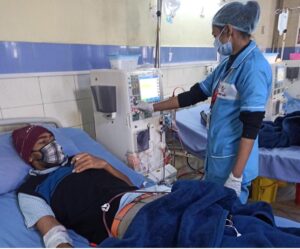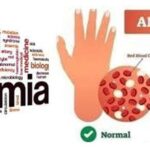Anemia management in dialysis patients has been one of the most challenging clinical problems in dialysis patients, but with the availability of ESA, the challenge is resolved and is shifted to maintaining adequate iron levels says Dr. Deepak Agarwal.


What causes anemia in CKD patients and what are its symptoms?
The anemia in CKD patient is primarily due to inadequate production of erythropoietin hormone, which is required for red blood cells production. Most prominent symptoms of anemia are fatigue, shortness of breathing, dizziness and sometimes sleep disorders. Anemia in hemodialysis patients is associated with decreased hemoglobin level, particularly when hemoglobin level is less than 10 g/dL.
How does anemia conditions affect the heart functioning?
The heart respond to the diminished oxygen carrying capacity of blood by attempting to maintain systemic oxygen delivery with increased cardiac output and consequently left ventricular hypertrophy. Patient may notice worsening shortness of breath and palpitations at this stage.
What are the indications, treatment therapy and adequate level that should be maintained in dialysis patients?
As erythropoietin deficiency is the primary cause of anemia in CKD patients, so the Erythropoietin Stimulating Agents (ESA) like Epoetinalfa, darbepoetinalfa and CERA are prescribed to correct anemia. ESA therapy should be started in CKD patients when the Hb level is below 10 g/dl. The hemoglobin levels of dialysis patients should be between 10 – 11 g/dl.
What causes the decreased response to the ESA therapy?
There are many reasons which leads to decreased response to ESA therapy, but the leading cause is iron deficiency, shorter life span of RBC’s, inflammation and infection, vitamin B12 deficiency. Maintaining adequate level of iron and ferritin may help better response to ESA therapy. The vitamin B12 levels of less than 300 pmol/L suggest deficiency. Medication to correct vitamin B12 deficiency may result in lesser dependency on ESA.
What measures can one take to improve hematocrit response?
Nutritional and vitamin deficiency may cause anemia, this can be corrected by taking vitamin B12, folate (Vitamin B9) and amino acids. Under dialysis can result in worsening anemia, so taking proper dialysis may help you increasing hematocrit. Concluding this, I would say that anemia has been one of the most challenging clinical problems in dialysis patients, but with the availability of ESA, the challenge is resolved and is shifted to maintaining adequate iron levels.


Dr. Deepak Agarwal
Vice President Clinical Operations
DCDC Health Services Private Limited, New Delhi











